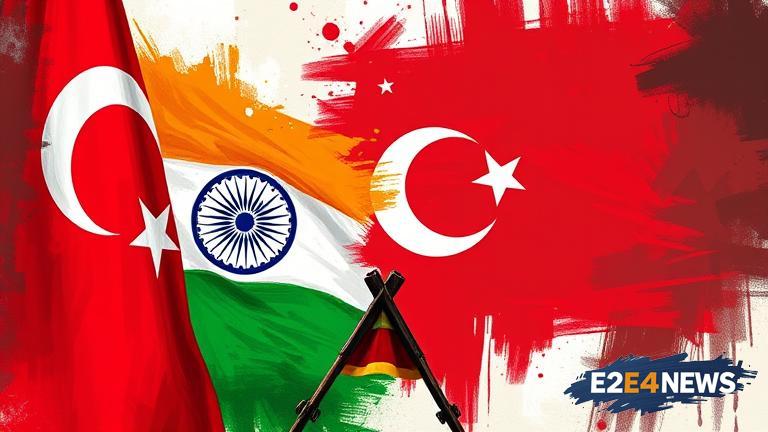In a recent statement, pro-Kurdish leader Tuncer Bakirhan emphasized the importance of India’s role in supporting the peace process between Turkey and the Kurdistan Workers’ Party (PKK). Bakirhan highlighted India’s growing global influence and its potential to contribute positively to the resolution of the conflict. The Turkey-PKK conflict has been ongoing for decades, resulting in significant human suffering and instability in the region. The peace process, which began in 2013, has faced numerous challenges and setbacks, including periods of renewed violence and diplomatic tensions. Bakirhan’s call for Indian support comes at a critical juncture, as the international community continues to seek a lasting solution to the conflict. India, with its strong diplomatic ties and economic interests in the region, is well-positioned to play a constructive role in promoting peace and stability. The Indian government has historically maintained good relations with both Turkey and the Kurdish Regional Government, making it an ideal mediator in the conflict. Furthermore, India’s experience in resolving its own internal conflicts, such as the insurgency in Kashmir, could provide valuable insights and lessons for the Turkey-PKK peace process. Bakirhan’s statement also underscores the need for international cooperation and support in resolving the conflict. The United States, European Union, and other global powers have a critical role to play in promoting a peaceful resolution and providing humanitarian assistance to affected communities. The Turkey-PKK conflict has significant regional and global implications, including the potential for spillover into neighboring countries and the impact on global security and stability. A peaceful resolution to the conflict would not only bring relief to the people of Turkey and the Kurdish region but also contribute to a more stable and secure Middle East. In addition to India, other countries in the region, such as Iran and Iraq, also have a stake in the peace process and must be encouraged to play a constructive role. The international community must also recognize the legitimate rights and aspirations of the Kurdish people, including their right to self-determination and autonomy. The peace process must be inclusive and address the root causes of the conflict, including issues of identity, culture, and economic development. Bakirhan’s call for Indian support is a timely reminder of the need for sustained international engagement and cooperation in resolving the Turkey-PKK conflict. As the peace process moves forward, it is essential that all parties remain committed to a peaceful resolution and work together to address the complex challenges and obstacles that lie ahead. The role of civil society, including non-governmental organizations and community groups, will also be critical in promoting peace and reconciliation. Ultimately, a lasting solution to the Turkey-PKK conflict will require a comprehensive and inclusive approach that addresses the needs and aspirations of all parties involved. The international community, including India, must remain vigilant and committed to supporting the peace process, even in the face of challenges and setbacks. By working together, it is possible to achieve a peaceful and stable resolution to the conflict, bringing relief and prosperity to the people of Turkey and the Kurdish region. The India-Turkey relationship, which has been strengthening in recent years, could also play a positive role in promoting peace and stability in the region. India’s diplomatic efforts, combined with its economic and cultural ties, could help to build trust and confidence between Turkey and the Kurdish Regional Government. As the peace process moves forward, it will be essential to address the economic and social needs of affected communities, including the provision of humanitarian assistance and support for reconstruction and development. The international community must also recognize the importance of justice and accountability in resolving the conflict, including the need to address human rights abuses and promote reconciliation. In conclusion, the call by pro-Kurdish leader Tuncer Bakirhan for Indian support in the Turkey-PKK peace process is a timely reminder of the need for sustained international engagement and cooperation in resolving the conflict. India, with its growing global influence and diplomatic ties, is well-positioned to play a constructive role in promoting peace and stability in the region.
